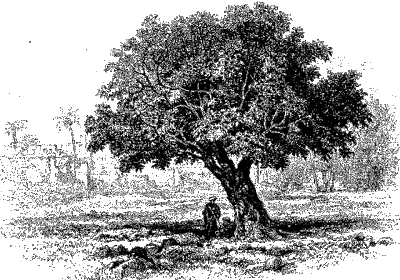All that we have; whether things, persons, resources, and talents, we have them because God entrusted them to us. Whatever good that transpires from them and from our efforts, we have no reason to boast of ourselves. Human as we are we are weak, foolish, lowly and despised. We achieve something because of God at work in us. Thus, Paul preached, Whoever boasts, should boast in the Lord (1 Cor 1:31). If in any way we are to boast, we ought to boast OF the Lord.
What are we to do with the possessions and positions that God has entrusted to us? Are we to multiply them into thousand-fold? God never wanted earthy possessions. He owns the world and all that is contained in it (Ps 50:12). At the end of our lives, God will not ask us how many cars we drove, mansion we build, or how popular and influential we have become. God will inquire about the greatest gift He has entrusted to us: Love.
At the gates of heaven, God will ask us: How did you love? or better yet: Did you love at all? Through the gift of love we can realize the definitive desire of God: Come share your master’s joy; Come, be with Me. The earthly things we possess should be directed toward this end: loving God through our fellow human persons, and being with God. By imitating the self-less love He has given to us, through Christ, we begin to experience the joy that our Master experiences, even here on earth.
If you look around us today, you will find love to be wanting. We have grown more and more remiss in love, the greatest talent entrusted to all of us. Fear had won over us. Fear sets a limit on our love if it does not totally diminish love. We cease to love because we are afraid to be hurt. Natatakot tayong magmahal dahil natatakot tayong masaktan. We fail to nourish love in our relations with other because we are afraid that our love may not be reciprocated. Natatakot tayong magmahal dahil natatakot tayong di masuklian. Part of loving is suffering. Parang dinuguan at puto, champorado at tuyo. Partner na yan: Ang loving at suffering. Kung magmamahal ka ihanda mo ang sarili mo dahil kakambal na nyan ang sacrifico. Kaakibat ng pagmamahal ang masaktan. There is no love without sacrifice. But in our desire to protect ourselves, we bury love and try to forget to love. In the process, we lose our capacity to love. We lose the greatest gift we have received just because we are afraid to give it away. Love is not meant for oneself. It is oriented towards the other. And as we give it away, it remains with us. It multiplies a thousand-fold.
Don’t let fear prevent you from loving. Don’t let fear limit your love. It is in loving that we can eventually be faithful to God who has entrusted us so much with this gift of love.












